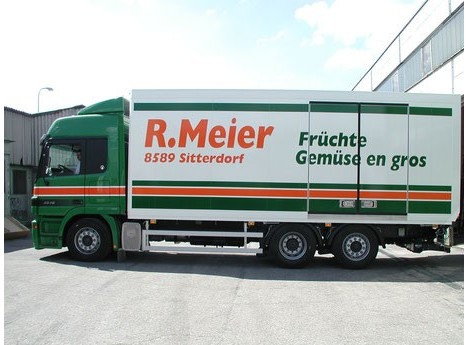This year's open ground harvest is slowly but surely getting underway in Switzerland. "Last year we had too little of everything, but this year there is far too much available, and this is already pushing massive surpluses onto the market. Unfortunately, there is no longer any talk of a corona effect, which is why marketing is generally developing rather sluggishly. For certain products, we are up to 25 percent below the previous year's level," says Thurgau vegetable trader René Meier, commenting on the current marketing situation.
Swiss rhubarb has been the only positive exception so far. However, rhubarb is rather a marginal article and only available for a short time. According to Meier, the Swiss vegetable sector is also facing today's challenges, such as massive cost increases. "At only 2.5 percent, the inflation increase is manageable compared to neighboring countries, but nevertheless we also have to reckon with increased packaging, wage and transport costs."

As a regionally active wholesale company, Meier mainly supplies wholesalers and processing companies / Photo: Meier
Rising demand for organic and niche vegetables
Due to impending grain shortages, many European growers are considering growing more wheat and the like instead of vegetables. "So far, the changes in Switzerland have not been that severe compared to many other countries. Even in this case, the cultivation in Switzerland is rather too small-structured for large-scale grain cultivation. In this respect, I don't see any threat to local vegetable production," Meier explains.
Nevertheless, some longer-term trends are also emerging in the Swiss vegetable sector. Meier says: "Organic and label products are showing interesting growth every year. The same applies to old vegetables, such as parsnips and white cabbage, although these tend to be niche products."
Impacting the convenience sector
As a regionally active vegetable trader, Meier mainly supplies wholesalers and medium-sized processing companies. "Especially in the latter division, Corona has significantly impacted the demand for processed vegetables. In the meantime, out-of-home consumption has recovered to some extent, but sales amount to about 80 percent of the pre-Corona level. To that extent, we are still seeing some after-effects."
For more information:
René Meier
Meier Gemüse
Amriswilerstrasse 36
8589 Sitterdorf, Schweiz
Tel.: +41 71 422 15 16
[email protected]
meier-gemuese.ch










